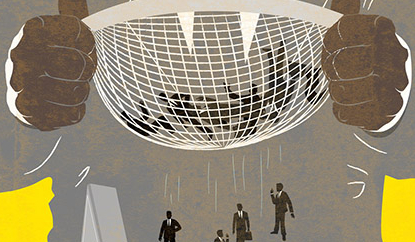英文法律词典 L-19
|
LEGALIS HOMO. A person who stands rectus in curia, who possesses all his civil rights. A lawful man. One who stands rectus in curia, not outlawed nor infamous. In this sense are the words probi et legates homines. LEGANTINE CONSTITUTIONS. The name of a code of ecclesiastical laws, enacted in national synods under Pope Gregory IX., and Pope Clement IV., about the years from 1220 to 1230. LEGATARY. One to whom anything is bequeathed; a legatee. This word is sometimes though seldom used to designate a legate or nuncio. LEGATION. An embassy; a mission. 2. All persons attached to a foreign legation, lawfully acknowledged by the government of this country, whether they are ambassadors, envoys, winisters, or attaches, are protected by the act of April 30, 1790, 1 Story's L. U. S. 83, from violence, arrest or molestation. 1 Dall. 117; 1 W. C. C. R. 232; 11 Wheat. 467; 2 W. C. C. Rep. 435; 4 W. C. C. R. 531; 1 Miles, 366; 1 N & M. 217; 1 Bald. 240; Wheat. Int. Law, 167. Vide Ambassador; Envoy; Minister. LEGATORY, dead man's part or share. (q. v.) The third part of a freeman's personal estate, which by the custom of London, in case he had a wife and children, the freeman might always have disposed of by will. Bac. Ab. Customs of London, D 4. LEGISLATIVE POWER. The authority under the constitution to make laws and to alter or repeal them. LEGISLATOR. One who makes laws. 2. In order to make good laws, it is necessary to understand those which are in force; the legislator ought therefore, to be thoroughly imbued with a knowledge of the laws of his country, their advantages and defects; to legislate without this previous knowledge is to attempt to make a beautiful piece of machinery with one's eye shut. There is unfortunately too strong a propensity to multiply our laws and to change them. Laws must be yearly made, for the legislatures meet yearly but whether they are always for the better may be well questioned. A mutable legislation is always attended with evil. It renders the law uncertain, weakens its effects, hurts credit, lessens the value of property, and as they are made frequently, in consequence of some extraordinary case, laws sometimes operate very unequally. Vide 1 Kent, Com. 227 and Le Magazin Universel, tome ii. p. 227, for a good article against excessive legislation; Matter, De l'Influence des Lois sur les Moeurs, et de l'Influence des Moeurs sur les Lois. |








